Is it possible for an immigrant to build a multi-billion dollar food business without venture capital? Chobani’s founder Hamdi Ulukaya made an all-in bet on his heritage and a powerful emerging consumer trend: Greek yogurt.
His story is one of entrepreneurial success, guts, and the dangers of debt financing. When his company hit a speed bump, he had to compromise and work with an old enemy: private equity. But then he found an unexpected way to maintain control of what he had built.
Key lessons:
Opportunity can present itself in unusual places — like a small town in upstate New York.
Chobani was not the first player in the space — but was the first to take a high quality product at a reasonable price to the mass market.
You can grow a company without venture capital — but there is little margin for error when the business hits a rough patch.
Coming to America
Ulukaya grew up in a Kurdish dairy-farming family. As a young student in Ankara he was questioned by police over his interest in the Kurdish-rights movement. Alarmed by the political environment he wanted to leave Turkey and a friend recommended America. Ulukaya hesitated as he “didn’t know anything about America. It didn’t connect with me at all. We thought capitalism was the reason for the suffering of poor people.” But his friend insisted, “Don’t be stupid, go to America.” Ulukaya remembered, “I looked at him and said, ‘I would never go to that capitalistic place.’ He said, ‘You think Europe is better? You go to America and try to learn English.’”
In 1994, he made the move. First to Long Island, then to upstate New York where he worked on a farm while studying. With almost no English, he was “extremely scared. I was aware that this was going to be very, very difficult. But I was excited.”
During a visit, his father said: “they don't have very good cheese here. You should make cheese.” Ulukaya pushed back. “What? I didn't come all the way here to make cheese!”
But together with one of his brothers he started a feta company called Euphrates in 2002. Ulukaya remembered those years as some of the “the most challenging” of his life.
Opportunity knocks
By 2005, Euphrates had some $2 million in sales and was barely breaking even. One day, Ulukaya found a flyer in his junk mail:
FULLY EQUIPPED YOGURT PLANT FOR SALE
It was an old Kraft Foods facility that used to make Philadelphia cream cheese. Ulukaya remembered: “It just was curiosity. If it was a year earlier, I would never pay attention.” The facility and equipment were offered for only $700,000. “I thought they left a zero off. I know what these things cost. It was impossible.”
He called up the broker. Could he see the 80-year-old yogurt factory? “Yeah, come tomorrow.”
Ulukaya thought like a value investor:
“The factory was a sad place, sort of like a cemetery, in a very small town. Fifty-five employees were preparing to shut it down. A lot of equipment was included, but it was old. The best thing about the place was the price: less than $1 million. Some of the individual machines would cost more than that if purchased new.”
His lawyer was not enthusiastic: “Hamdi, what are you talking about? Kraft is closing the plant? They’re looking for an idiot. You’re the idiot.”
But Ulukaya went for it: “I go with my gut feelings a lot. That got into our culture. We just go boom, boom, boom: fast.”
He wrote a business plan and got a loan backed by the U.S. Small Business Administration, offering “a personal guarantee and 10 per cent of the purchase price.” 90 per cent of the price was financed by the bank and the government at a low rate and with a 10-year term.
He hired four of the people laid off by Kraft and a master yogurt maker from Turkey. For two years they perfected the recipe for strained yogurt. While the name Chobani is of Turkish/Persian origin and means shepherd, the yogurt was marketed as Greek, a style that was becoming popular with niche brands like Fage.
“I go back to my childhood in Turkey. It didn’t matter if you were poor or rich, you couldn’t imagine a table without yogurt. It’s something that represents equality, nature, nutrition. I always missed it. In upstate New York, I thought, “Where is that yogurt? It can’t be so hard to make.”
Chobani launched in 2007 and quickly took off. "We didn't want to do high end. We went to the big chains and said we wanted to put it in the regular yogurt section.”
“We insisted that Chobani be sold in mainstream grocery stores rather than specialty stores, and that it be stocked in the dairy aisle, alongside existing yogurt brands, rather than in the gourmet or natural food aisles. That’s probably the single most important decision we made.”
He wasn’t the first mover but he quickly got better distribution and escaped the niche. Ulukaya also invested in premium packaging: “American yogurt has always been sold in containers with relatively narrow openings. In Europe yogurt containers are wider and squatter, and that’s what I wanted for Chobani—I wanted the package to signal that the product inside was very different.”
It was a premium product at premium, but still reasonable, pricing: “We ended up charging less than $1.50 a cup—more than traditional American brands (which typically sold for less than $1), but far less than the European-style yogurt that sold for $3 to $5 in gourmet stores.”
Chobani was an instant success and the Greek yogurt category exploded. “Within a couple of weeks after Chobani got into ShopRite, we started getting orders for 5,000 cases. The first time we received one, I kept double-checking to make sure it didn’t say 500. It quickly became clear that our biggest challenge wasn’t going to be selling enough yogurt—it was going to be making enough yogurt.”
His staff pulled all-nighters to keep up with orders. “The next five years, I never left the plant. I don’t remember anything I did—day or night—that wasn’t related to yogurt.”
Too far too fast?
“If we were wrong this was the end of the company.”
Ulukaya quickly received interest from investors: “For a while I took calls and meetings with private equity firms. It was a learning process. They try to make you doubt yourself—it’s a standard part of their pitch.”
Instead, he opted to finance his growth with bank loans and by reinvesting all profits. In 2013, he outlined his philosophy: “This is a crucial piece of the Chobani story. Our ability to grow without reliance on external investors. Today Chobani is a $1 billion business, and I remain the sole owner. That means I can run the company the way I choose—and plan for its future without pressure from outsiders.”
His next step was to build a massive new facility in Twin Falls, ID to expand the product line and be closer to the West Coast. It was the world’s largest yogurt plant and cost half a billion. The factory was financed with a bank line of credit.
I didn’t appreciate the nuance of what happened next when I wrote up the story on Twitter. However, Post_Market helpfully pointed me in the right direction.
After opening Twin Falls, Chobani got hit with the 'perfect storm':
Incumbents Danone, Yoplait, and Fage ramped up their marketing spend (7x 2013 vs 2011).
Milk prices increased, pressuring margins.
The new facility ran at low utilization.
EBITDA turned negative in 2013 and debt started to run up.
The company faced a liquidity crunch and needed new capital quickly. Ulukaya looked for a minority investor and started a conversation with private equity firm TPG.
As time started running out for Chobani, the deal structure changed from preferred equity to a second lien loan. TPG called it a “structured creative deal with lots of iterations along the way.” That is code for “we were able to negotiate favorable terms and downside protection because the borrower was in a tight spot.”
The deal closed with barely two weeks left on Chobani’s liquidity clock. TPG lent some $750 million at a juicy low teens yield (though mostly paid in kind, not cash), got board representation, and warrants for 20-30 per cent ownership.
TPG's rationale was straightforward: They saw fixable problems in operations and sales weighing on a strong brand in a fast-growing market segment. Chobani could add to its senior staff (including experienced operational 'fixers' from large incumbents like Walmart), remedy inefficiencies and waste at the new plant, and achieve significant margin upside.
Taking the power back
We already know that Ulukaya was no fan of private equity. And it seems that he quickly tired of having TPG as his major minority shareholder.
In 2016, he gave 10 per cent of the equity to his 2,000 employees. At a $3 billion valuation, the average grant per employee was $150,000. “I’ve built something I never thought would be such a success,” he said, “but I cannot think of Chobani being built without all these people.”
It seems that his generous action was also a strategic move: TPG’s stake would be calculated from the remaining 90 per cent. With a high publicity move, he reduced their influence in his company. “This was a very clever power play, make no mistake. TPG may have been surprised that Hamdi was willing to give up 10 per cent just to dilute them,” a source told the New York Post.
In 2018, the Healthcare of Ontario Pension Plan bought out TPG at a ‘handsome profit.’ Ulukaya seemed content with his new partner: “It’s about long-term thinking, having a long-term partner and getting more control back.”
With the upcoming IPO targeting a valuation of $10 billion, many of Chobani’s employees can consider themselves lucky to be Ulukaya’s partners. And it seems they owe some of their luck to his wrangling with the firm that pressed a hard bargain when he had his back to the wall.
Oh, here's the kicker for the deal nerds among you: TPG's deal memo is on Scribd.
Favorite quotes
“We were so fast—so fast. When the large companies woke up, it was already too late.”
“I’m a shepherd and I’m a warrior. I come and go between those two. I’m a nomad, and nomads are the most real people. You can’t pretend.”
“There is not a day that goes by that I don’t travel back to my childhood. You see something and it reminds you of home. It could be a light, a taste, a song. It reminds me of my mother’s food or sitting around the fire, of us kids playing in the snow or watching the stars.”
“One thing people don’t realize in food is it’s not the product idea that’s important. It’s in the fundamentals of operation. I personally believe, at Chobani, we are all factory workers. I am a factory worker before I’m anything else. Our plants are the core of what we do. People don’t see that, they think it’s just cute-looking ads and cups. But the retailers are going to ask you, “Can you deliver?” In a way, we are an operations company.”
Sources and additional reading
HBR: Chobani’s Founder on Growing a Start-Up Without Outside Investors
TED talk: the anti-CEO playbook





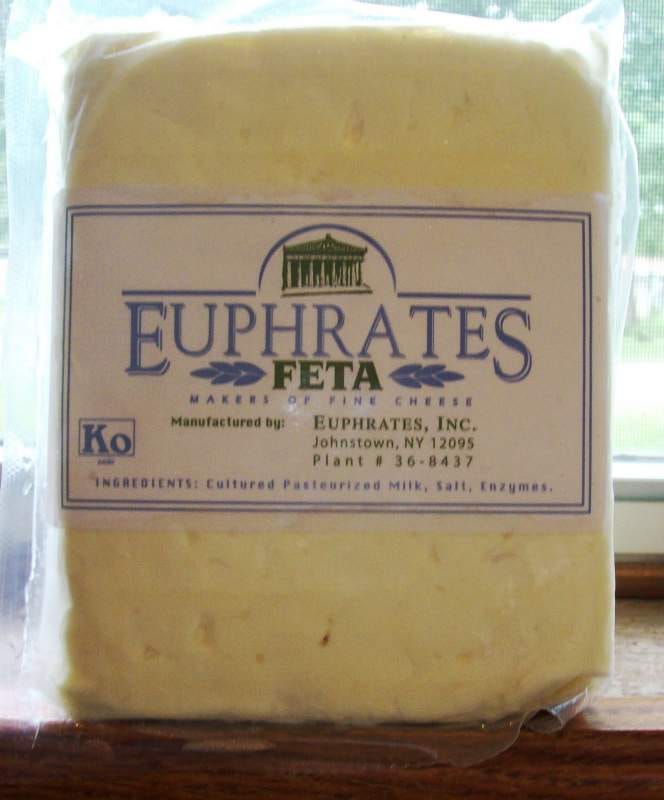

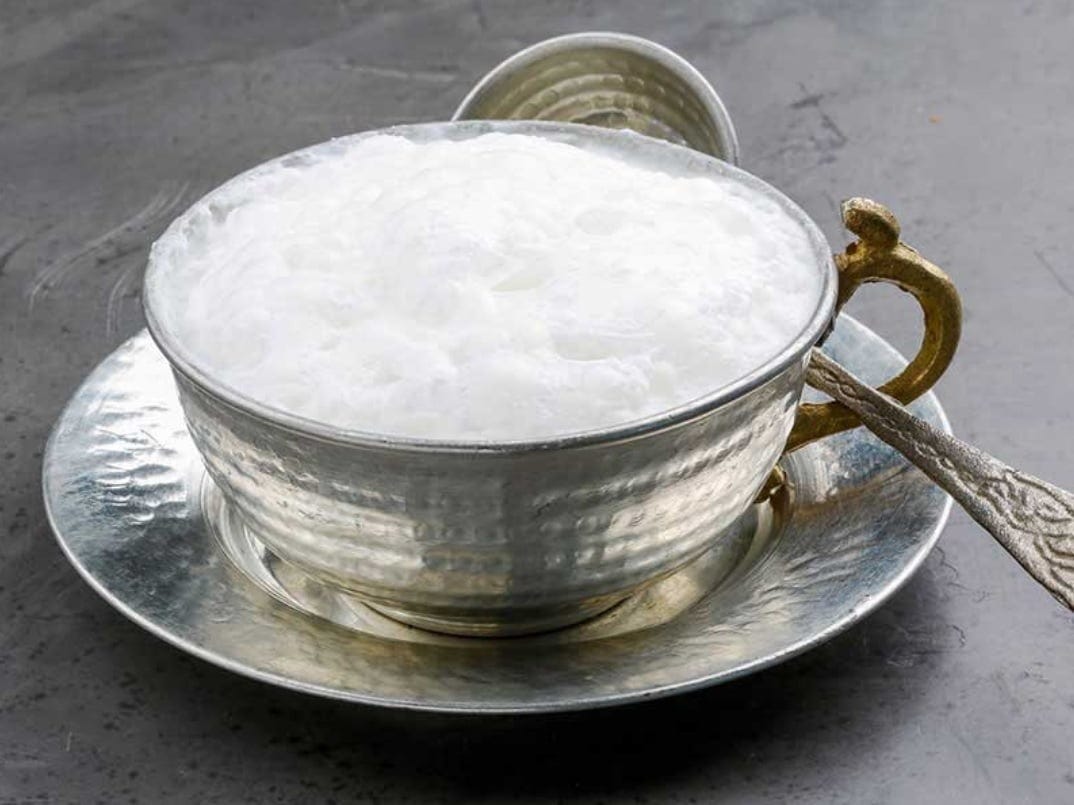
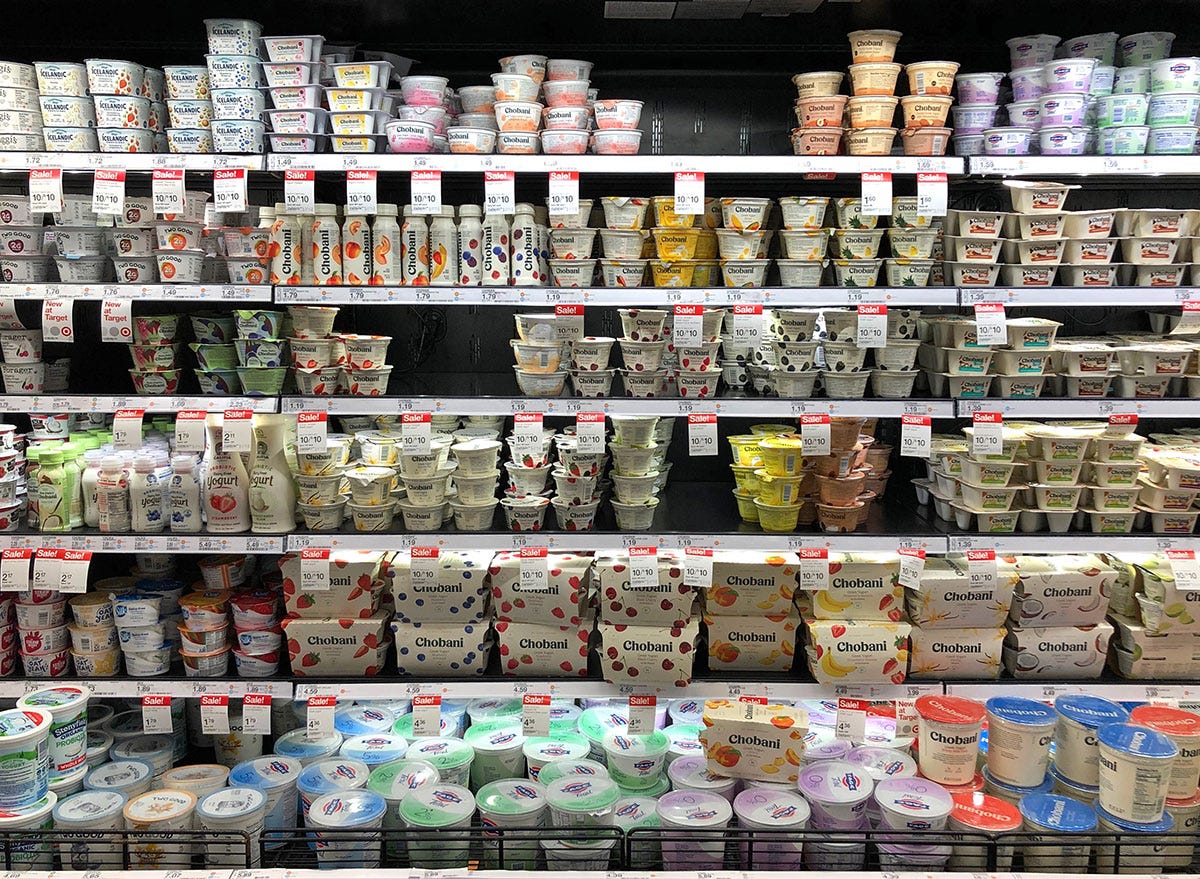

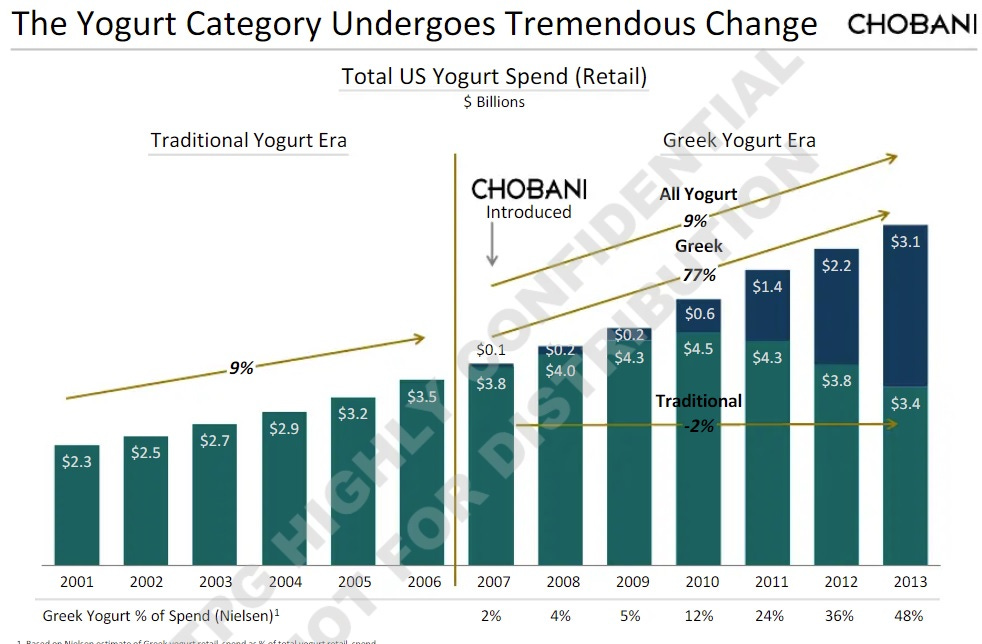
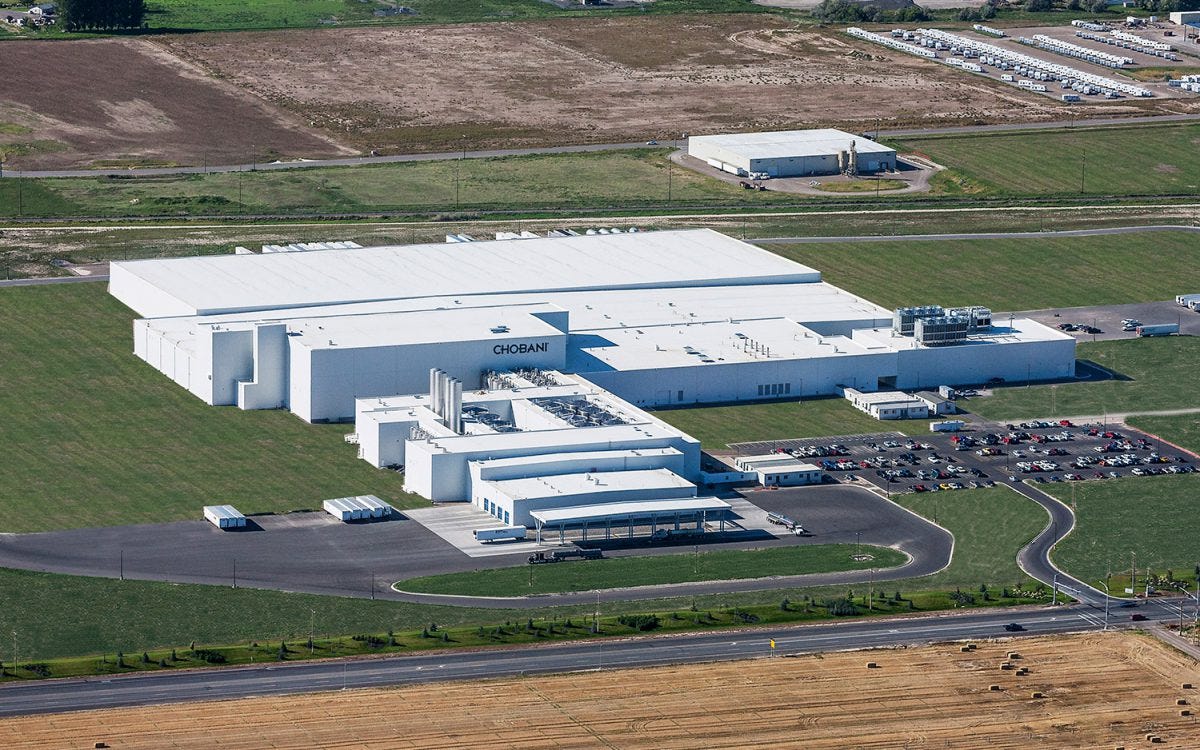

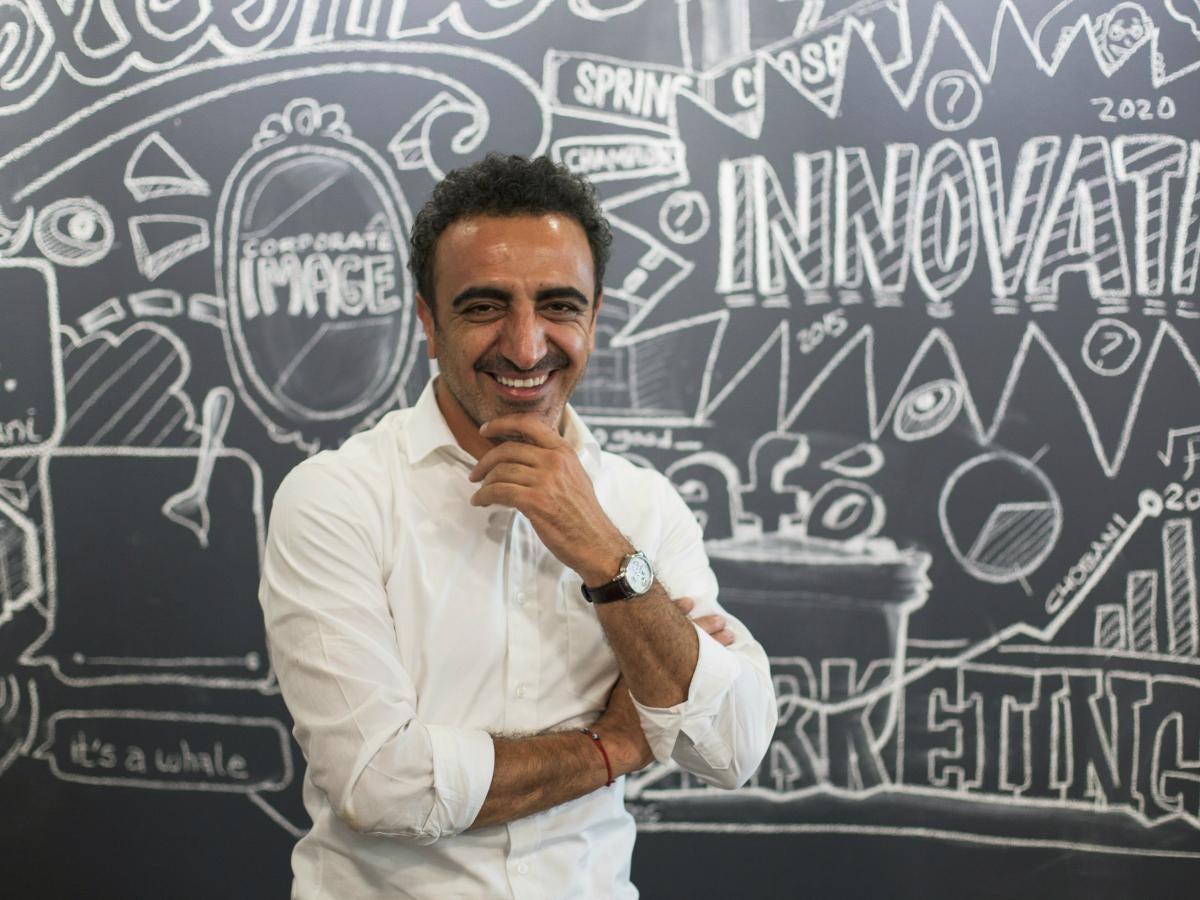
I know this one will make me hungry... *stomach growls*